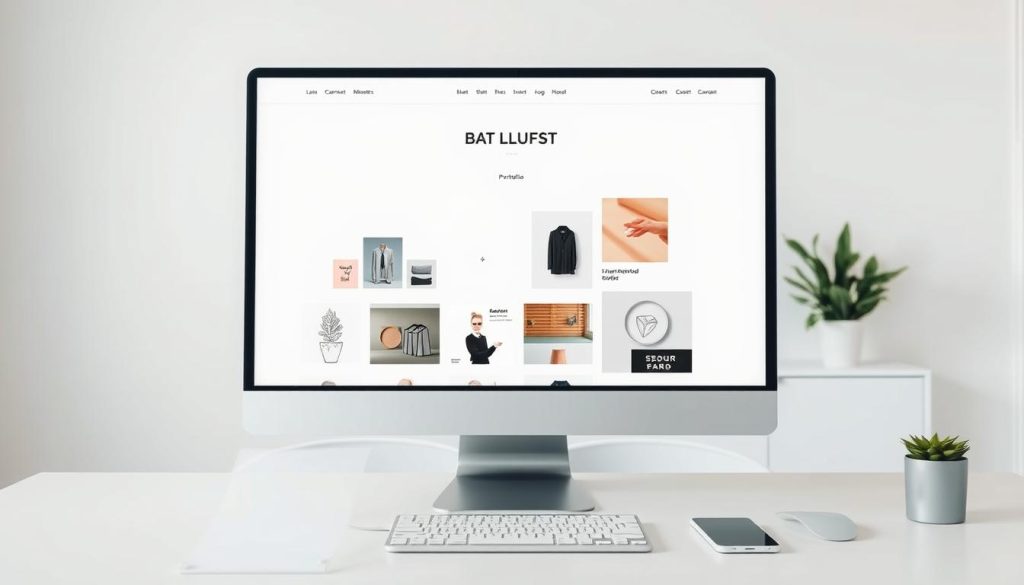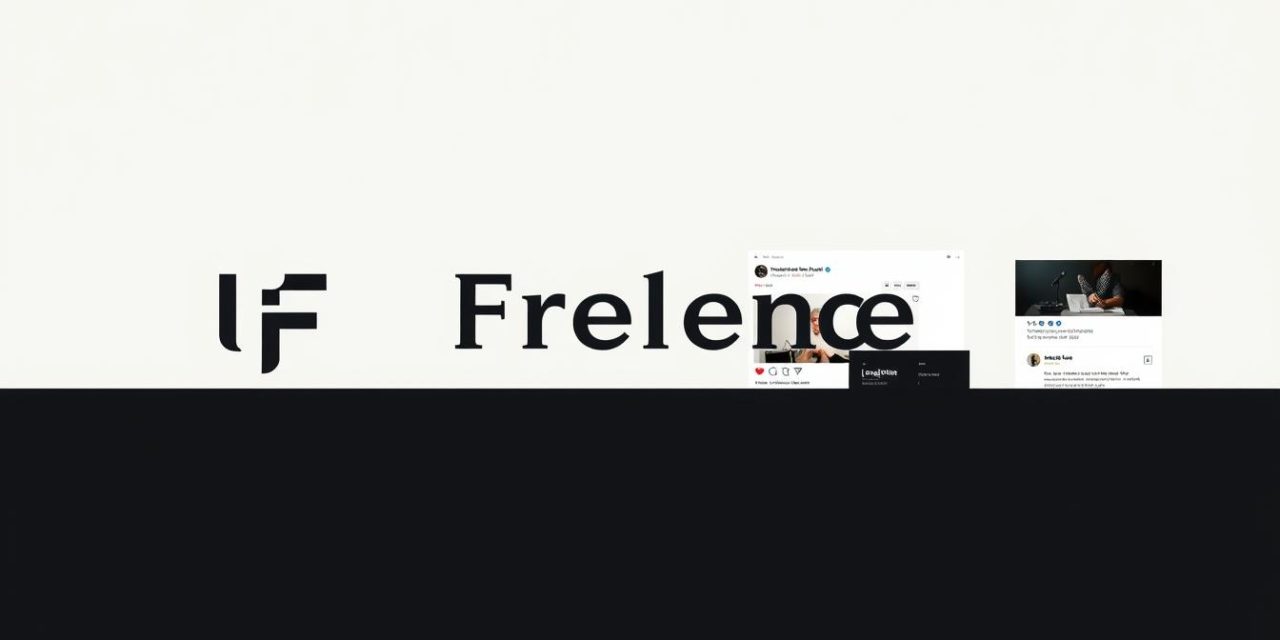Are you a freelancer struggling to stand out in a crowded market? Do you wonder how some professionals seem to attract quality clients effortlessly? The secret lies in building a strong personal brand that showcases your unique skills and values.
Establishing a professional identity is no longer optional for freelancers; it’s essential for success. A well-crafted brand helps you differentiate yourself from competitors and attract your ideal client base. By developing a compelling personal brand, you can elevate your career and open new opportunities.
For more insights on enhancing your online presence, check out our guide on boosting your personal branding. This resource provides valuable tips on creating a strong professional identity.
Table of Contents
Key Takeaways
- Understand the importance of personal branding for freelancers.
- Learn how to differentiate your brand from corporate branding strategies.
- Discover practical steps to create a cohesive brand identity.
- Find out how a strong personal brand can drive business growth.
- Explore tools and resources to enhance your online presence.
The Power of Personal Branding for Freelancers
In the competitive world of freelancing, establishing a strong personal brand is crucial for success. As a freelancer, your professional identity is your most valuable asset, setting you apart from others and helping you attract the right clients.
What Is Personal Branding and Why It Matters
Personal branding for freelancers involves cultivating a distinct and authentic professional identity that reflects your expertise, values, and unique qualities. It’s about establishing a reputation that positions you as an authority in your field. Effective personal branding is the intentional effort to create and influence public perception by positioning yourself as an authority in your industry, elevating your credibility, and differentiating yourself from the competition.
For freelancers, your personal brand represents the intersection of your professional skills, personality traits, and unique value proposition. A well-defined personal brand instills trust and credibility with potential clients, making them more likely to choose you over competitors.
How Strong Branding Sets You Apart in a Competitive Market
In today’s saturated market, strong branding serves as your competitive advantage, helping you stand out among thousands of other professionals offering similar services. Effective personal branding allows you to command higher rates for your services, as clients are willing to pay premium prices for freelancers who demonstrate expertise and professionalism through consistent branding.
| Benefits of Personal Branding | Description |
|---|---|
| Increased Credibility | A well-defined personal brand instills trust with potential clients. |
| Competitive Advantage | Strong branding helps you stand out in a crowded market. |
| Higher Rates | Effective personal branding allows you to command premium prices. |
Understanding Your Unique Value Proposition
To stand out in a competitive freelance market, it’s crucial to define your unique value proposition. This involves a deep understanding of your strengths, the needs of your target audience, and the unique benefits you offer.
Identifying Your Strengths and Expertise
Developing a compelling personal brand begins with an honest self-assessment of your core strengths and specialized skills. Consider what drives your passion for your work and what makes you stand out in your field. For instance, you might excel in a particular industry or possess a unique skill set that is in high demand. By identifying these strengths, you can begin to articulate your expertise and the value you bring to clients.
Defining Your Target Audience and Niche
Defining your target audience with precision allows you to tailor your brand messaging to address their specific pain points, needs, and aspirations. This makes your services more relevant and appealing. Finding your niche is crucial for brand differentiation. Rather than being a generalist competing with everyone, specialization positions you as the go-to expert for specific challenges or industries. For more insights on identifying your target audience, you can refer to resources like this guide on defining your target audience as a.
Crafting Your Brand Story and Message
Your brand story connects your professional journey, values, and vision in a narrative that resonates emotionally with potential clients. It helps them understand not just what you do, but why you do it. Crafting a clear, concise brand message ensures consistency across all touchpoints and helps clients quickly understand the value you provide and the problems you solve. Your brand message should reflect your unique value proposition and be communicated consistently across all platforms.
To illustrate the key elements of a unique value proposition, consider the following table:
| Key Element | Description | Example |
|---|---|---|
| Strengths and Expertise | Identifying your core strengths and specialized skills. | A web developer with expertise in e-commerce platforms. |
| Target Audience | Defining the specific group of clients you serve. | Small to medium-sized businesses in the retail sector. |
| Brand Story and Message | Crafting a narrative that resonates with your audience. | « Empowering businesses through innovative web solutions. » |
Essential Elements of Effective Branding for Freelancers

Effective branding is vital for freelancers to establish a professional presence and build trust with clients. A strong brand identity helps differentiate you from competitors and makes your services more memorable.
Choosing the Right Business Name
Selecting a business name is the first critical step in establishing your freelance brand. It should be memorable, relevant to your services, and available across digital platforms. Consider whether using your personal name or creating a business name is more beneficial for your brand identity.
Developing Your Visual Identity: Logo, Colors, and Typography
A professional logo effectively communicates your brand personality and should work well at different sizes. Your visual identity system also includes a strategic color palette that evokes specific emotions and associations relevant to your services and industry. Typography choices significantly impact brand perception, so selecting fonts that balance professionalism with personality is crucial.
Creating a Consistent Brand Voice and Tone
Developing a consistent brand voice and tone guidelines helps maintain cohesion across all client communications. This includes emails, proposals, social media content, and blog posts. A consistent brand voice ensures that your written communications reinforce your brand identity and build trust with potential clients.
To achieve effective branding, consider the following key elements:
- Your business name serves as the foundation of your brand identity.
- A professional logo doesn’t require a significant investment but should effectively communicate your brand personality.
- Your visual identity system encompasses more than just a logo, including a strategic color palette and typography choices.
- Developing a consistent brand voice and tone guidelines helps maintain cohesion across all client communications.
- The most effective freelance brands balance professionalism with personality, creating a distinct identity that feels both credible and approachable to potential clients.
Building Your Online Presence
In today’s digital age, a strong online presence is the cornerstone of a successful freelance career. Your online presence is a crucial component of your personal brand, and it’s essential to ensure that your website, social media profiles, and portfolio consistently reflect your brand identity.
Creating a Professional Website That Reflects Your Brand
Your professional website serves as the central hub of your freelance brand. It should clearly communicate your services, showcase your portfolio, and provide a seamless user experience that reflects your brand standards. When choosing a website platform, consider options like WordPress, Wix, or Squarespace, which offer customizable templates and user-friendly interfaces.
Optimizing Your Social Media Profiles
A strategic social media presence begins with identifying which platforms your target clients use most. Optimize those profiles with consistent branding elements and compelling bio information. Ensure that your profiles are complete, up-to-date, and aligned with your overall brand message.
Developing a Content Strategy That Showcases Your Expertise
Developing a content strategy that demonstrates your expertise positions you as a thought leader in your field. Whether through blog posts, case studies, podcasts, or video content, consistent creation helps establish you as an authority and keeps your audience engaged. Share valuable insights, showcase your work, and engage with your audience to build a robust online presence.
By focusing on these key areas, you can build a cohesive brand story across all platforms, reinforcing your unique value proposition and professional identity. Regularly update your content and engage authentically with your audience to humanize your brand and build lasting relationships.
Showcasing Your Work: Portfolio Development

A well-curated portfolio can be the deciding factor in attracting the right clients for your freelance business. It’s essential to showcase your work in a way that aligns with your brand and appeals to your target audience.
Selecting Projects That Align With Your Brand
When selecting projects for your portfolio, focus on those that demonstrate your expertise and align with your brand positioning. This strategic curation helps attract clients who are looking for the specific skills you offer. For more insights on finding the right projects, visit our guide on recherche de missions pour freelances.
Presenting Your Work Effectively
Presenting your work effectively involves creating a narrative around each project that highlights your strategic thinking and the impact of your work. By doing so, you provide potential clients with a clear understanding of your capabilities and the value you can deliver.
Using Case Studies and Testimonials to Build Credibility
Case studies and testimonials are powerful tools for building credibility. They offer social proof of your skills and the quality of your work, helping to establish trust with potential clients. By showcasing successful projects and positive feedback, you can significantly enhance your professional reputation.
Networking and Building Relationships
For freelancers, networking is not just about expanding contacts; it’s about cultivating meaningful relationships that foster growth. Effective networking involves more than just collecting business cards; it’s about establishing genuine connections based on mutual value and professional respect.
Leveraging Your Personal Brand in Networking
Your personal brand serves as your introduction in networking contexts, creating recognition and recall that makes meaningful connections more likely to develop into opportunities. By consistently presenting your brand across all networking platforms, you reinforce your professional identity and make a lasting impression on potential clients and collaborators.
Building Partnerships with Other Freelancers
Forming partnerships with complementary freelancers can lead to referral opportunities and collaborations on larger projects that benefit both parties. This strategic approach to networking not only expands your professional circle but also enhances your capacity to undertake complex projects by pooling resources and expertise.
Engaging with Your Target Audience Online
Engaging authentically with your target audience online through thoughtful comments, helpful responses, and valuable insights positions you as approachable and knowledgeable in your field. This online engagement is a critical component of your networking strategy, allowing you to build trust and establish your authority in your niche.
| Networking Strategy | Benefits | Outcomes |
|---|---|---|
| Leveraging Personal Brand | Recognition and Recall | Meaningful Connections |
| Building Partnerships | Referral Opportunities | Collaborations on Larger Projects |
| Engaging Online | Trust and Authority | Established Expertise |
By adopting a strategic and genuine approach to networking, freelancers can significantly enhance their professional prospects and build a sustainable pipeline of opportunities.
Maintaining Brand Consistency Across All Touchpoints

Brand consistency across all touchpoints is essential for a cohesive professional experience. As a freelancer, your brand is your most valuable asset, and maintaining its integrity is crucial for building trust with your audience.
Client Communication and Experience
Effective client communication is vital for delivering a consistent brand experience. Your communication style should reflect your brand voice guidelines, ensuring consistency whether you’re sending a proposal, providing project updates, or addressing concerns. By doing so, you create a cohesive professional experience that reinforces your identity and builds trust with your clients.
- Use a consistent tone in all client interactions.
- Ensure that your messaging framework is aligned with your brand’s overall vision.
Marketing Materials and Proposals
Marketing materials, including proposals, case studies, and promotional content, should adhere to your visual identity standards and messaging framework. This ensures a unified brand image that presents your services cohesively. By using templates and systems for common client interactions, you can maintain consistency while saving time and reducing decision-making efforts.
Evolving Your Brand as Your Business Grows
As your business grows and evolves, your brand should adapt accordingly. Regular brand audits help identify areas where refinement is needed to reflect your current services and market position. By documenting your brand standards in a simple style guide, you can ensure consistency even as you bring on team members or collaborators who communicate on behalf of your business.
- Regularly review and update your brand standards.
- Ensure that any new team members or collaborators understand your brand guidelines.
Conclusion: Your Brand Is Your Most Valuable Asset
A well-crafted personal brand is the cornerstone of a successful freelance career. It represents the culmination of your professional experiences, skills, and values, serving as an intangible asset that generates opportunities even when you’re not actively seeking them.
Investing in a strong brand pays dividends through higher rates, more selective client relationships, and reduced business development time. Your brand’s true value lies in creating meaningful connections with clients who appreciate your unique approach.
To learn more about starting your freelancing journey and building a successful business, visit our comprehensive guide: Start Your Freelancing Journey. Regular reflection on your brand positioning ensures it remains aligned with your professional goals and the needs of your ideal clients, fostering a business with longevity and resilience.
By thoughtfully developing and maintaining your professional identity, you create a foundation for sustainable business growth and professional fulfillment, making your brand your most valuable asset.
FAQ
What is the importance of having a personal brand as a freelancer?
Having a personal brand is crucial as it helps you establish a unique identity, differentiate yourself from competitors, and build trust with potential clients. It showcases your expertise, values, and mission, making it easier to attract the right projects and opportunities.
How do I define my target audience and niche as a freelancer?
To define your target audience and niche, you need to identify your strengths, skills, and areas of expertise. Consider the type of projects you enjoy working on, the industries you’re familiar with, and the problems you can solve. Research your competition and potential clients to understand their needs and preferences.
What are the essential elements of effective branding for freelancers?
Effective branding for freelancers includes a professional business name, a consistent visual identity (logo, colors, typography), a clear brand voice and tone, and a strong online presence. It’s also important to develop a content strategy that showcases your expertise and resonates with your target audience.
How can I maintain brand consistency across all touchpoints?
To maintain brand consistency, ensure that your branding is consistent across your website, social media profiles, marketing materials, and client communication. Use a consistent tone, language, and visual identity across all platforms, and regularly review and update your branding to ensure it remains aligned with your business goals.
What role does networking play in building my personal brand?
Networking plays a significant role in building your personal brand as it allows you to connect with potential clients, partners, and other freelancers. By leveraging your personal brand in networking, you can establish yourself as an expert in your field, build meaningful relationships, and identify new opportunities.
How often should I review and update my branding?
It’s essential to regularly review and update your branding to ensure it remains relevant and aligned with your business goals. As your business grows and evolves, your branding may need to adapt to reflect changes in your services, target audience, or industry.





